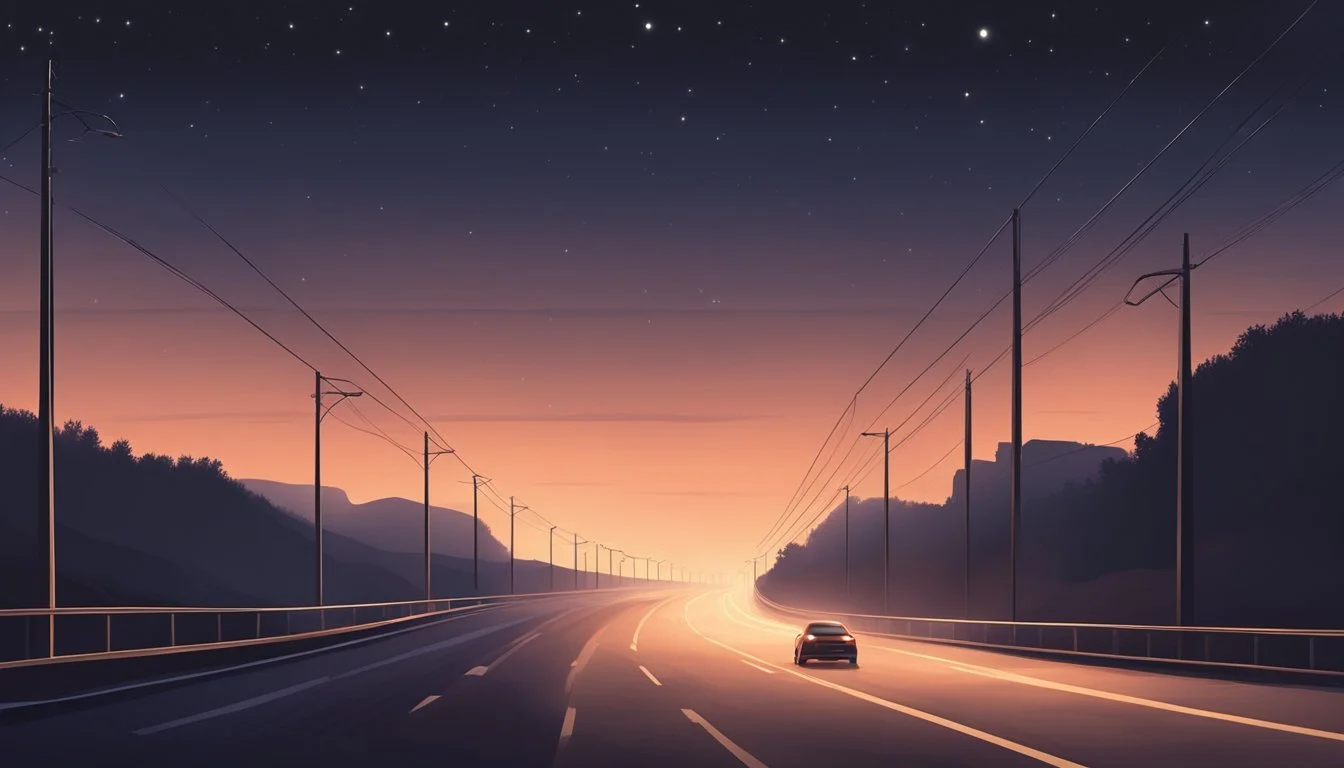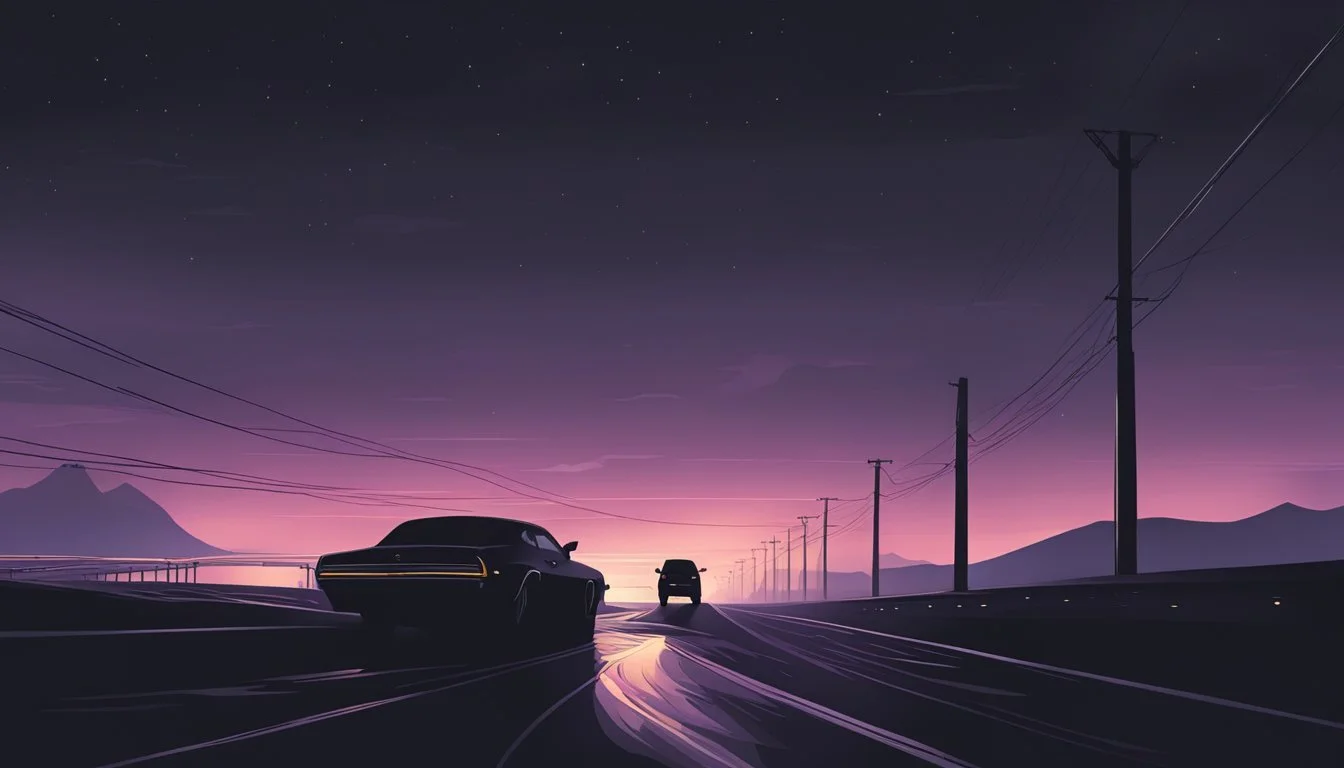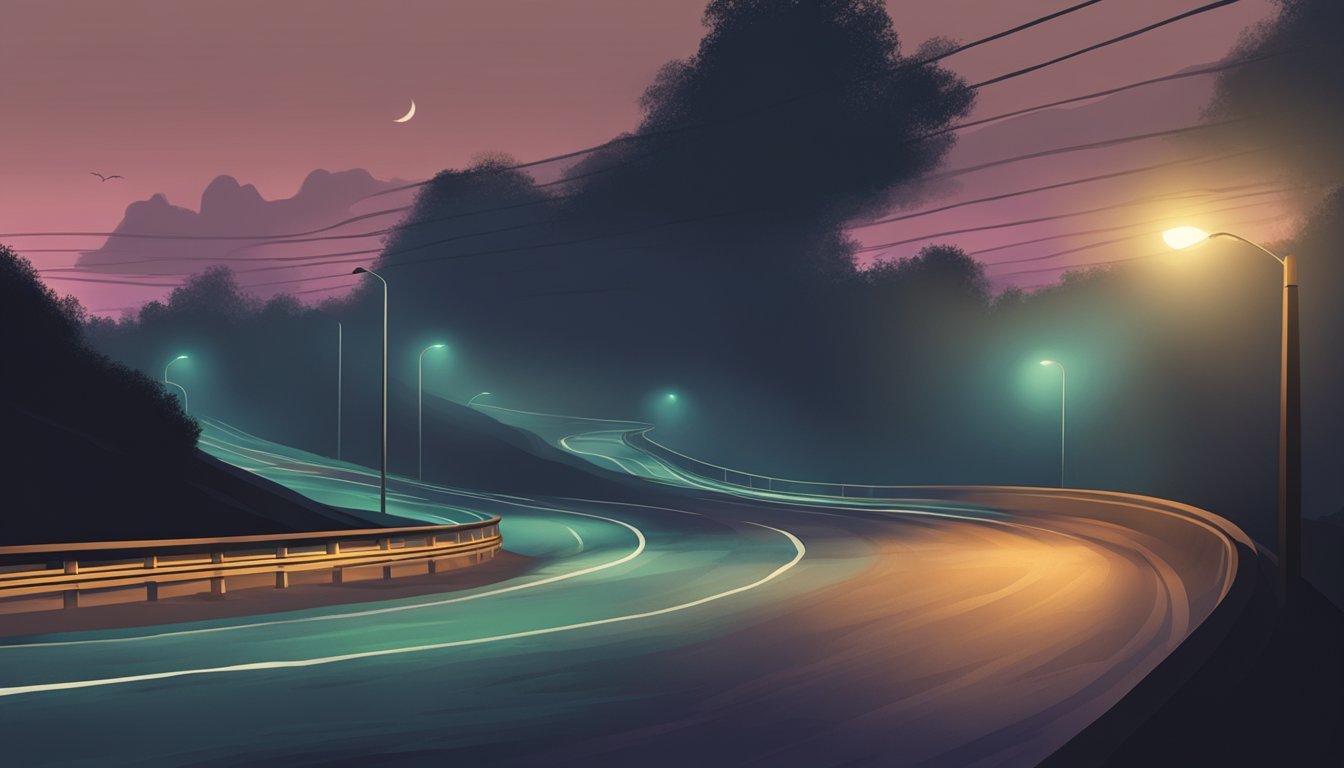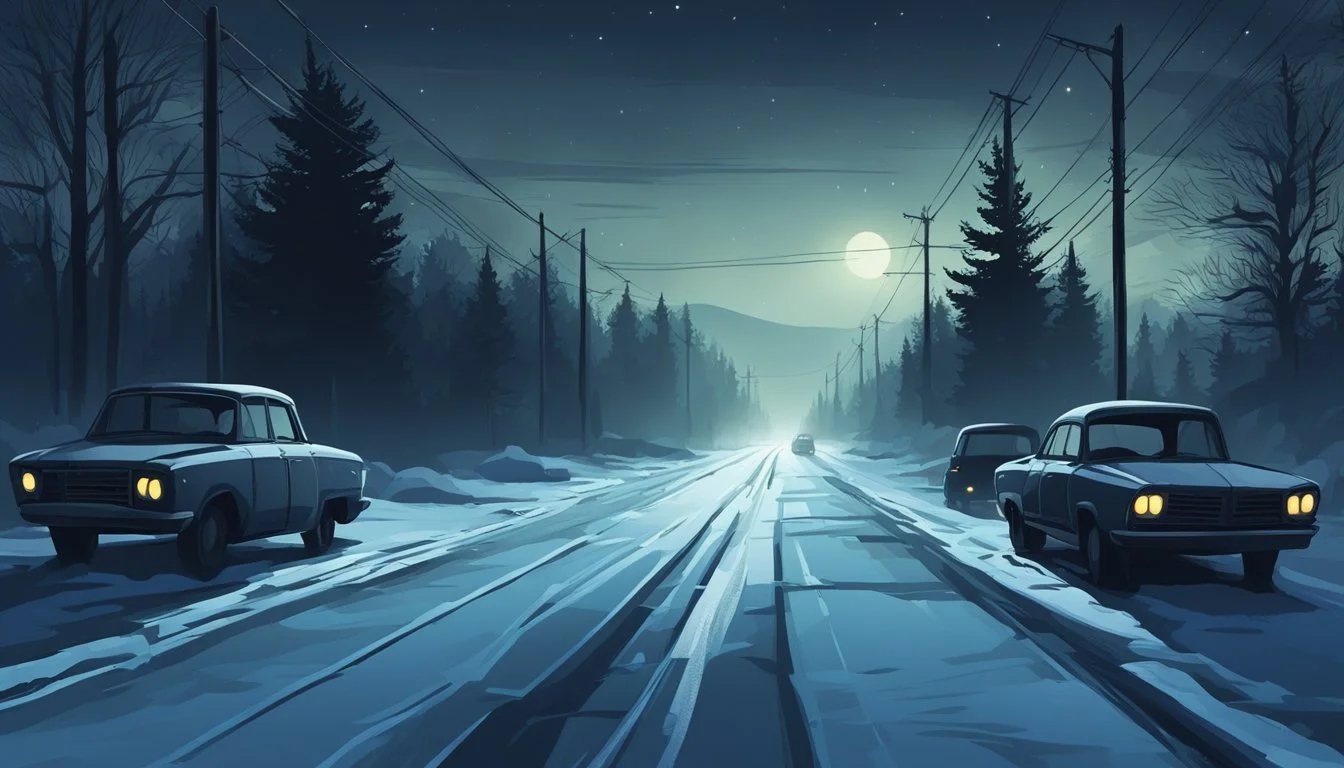William Bonin: 6 Terrifying Films About the Freeway Killer
A Cinematic Look at a Notorious Serial Murderer
William Bonin, known as the "Freeway Killer," terrorized Southern California in the late 1970s and early 1980s. His heinous crimes have since become the subject of several films, each offering a unique perspective on the serial killer's life and crimes.
These movies explore the dark psychology and brutal actions of one of America's most notorious murderers, shedding light on a chilling chapter in criminal history. From documentaries to dramatizations, filmmakers have attempted to capture the disturbing reality of Bonin's killing spree and its impact on victims, families, and the community at large.
1) No One Lives
This 2013 horror thriller directed by Ryuhei Kitamura features Luke Evans as a ruthless killer who terrorizes a gang of criminals. While not directly based on William Bonin, the film's protagonist shares some similarities with the Freeway Killer.
The main character displays a calculated and merciless approach to his victims, reminiscent of Bonin's methodical nature. He employs clever tactics to trap and eliminate his targets, echoing Bonin's use of ruses to lure victims.
The film's intense chase sequences and brutal violence evoke the fear that Bonin instilled in Southern California during his killing spree. The protagonist's ability to outsmart his pursuers also mirrors Bonin's evasion of law enforcement for an extended period.
No One Lives explores themes of survival and the blurred lines between predator and prey, concepts relevant to the Bonin case. While fictionalized, the film captures the essence of a cunning and relentless killer.
https://www.imdb.com/title/tt1833844/
2) The Freeway Killer: How He Was Finally Caught
William Bonin's reign of terror came to an end on June 11, 1980. Police had been observing him for over a week, acting on a tip from his 17-year-old co-defendant William Ray Pugh.
On that fateful day, Bonin was in Hollywood when a 15-year-old boy got into his vehicle. Shortly after, police caught Bonin in the act of raping the teenage victim.
A search of Bonin's van revealed incriminating evidence. Detectives found items used in his murders, including rope, wire, and a tire iron.
This arrest led to Bonin's identification as the notorious Freeway Killer. It marked the conclusion of a horrific spree that had terrorized Southern California for months.
Bonin was ultimately convicted of 14 murders, though he confessed to 21. Some suspect he may have been responsible for even more deaths during his yearlong rampage.
3) Night Stalker
Night Stalker is a 2002 made-for-television film that chronicles the crimes of Richard Ramirez, another notorious California serial killer. While not directly about William Bonin, it explores similar themes of terror gripping a community.
The film stars Bret Roberts as Ramirez and focuses on the police investigation to catch the killer. It depicts Ramirez's brutal home invasions and murders that terrorized Los Angeles in 1985.
Night Stalker provides insight into the impact of a serial killer on a city and the intense manhunt to bring them to justice. These elements parallel aspects of the Freeway Killer case, though Bonin and Ramirez had different methods and motivations.
The movie examines how law enforcement pieced together clues and eventually identified Ramirez. It also touches on the media frenzy and public fear surrounding the Night Stalker murders.
While a fictionalized account, Night Stalker offers a glimpse into the dark world of California serial killers that Bonin was also a part of during the late 20th century.
4) The Frozen Ground
"The Frozen Ground" is a 2013 thriller based on the true story of Alaskan serial killer Robert Hansen. While not directly about William Bonin, it shares themes with films depicting the Freeway Killer's crimes.
The movie stars Nicolas Cage as an Alaska State Trooper investigating a series of murders. Vanessa Hudgens portrays a young woman who escaped Hansen's clutches and assists in the investigation.
John Cusack takes on the role of Robert Hansen, the seemingly ordinary baker who hunted and killed numerous women. The film explores the hunt for a prolific serial killer operating in a remote location.
"The Frozen Ground" depicts the challenges of catching a killer in Alaska's vast wilderness. It highlights the vulnerability of victims in isolated areas, similar to Bonin's targeting of hitchhikers on California's freeways.
The movie provides insight into the psychological toll on both investigators and survivors of serial killers. It examines themes of justice and the impact of such crimes on communities.
The Frozen Ground (2013) - IMDb
5) Henry: Portrait of a Serial Killer
Henry: Portrait of a Serial Killer is a disturbing psychological horror film released in 1986. Directed by John McNaughton, the movie stars Michael Rooker in his debut role as the titular Henry.
The film follows Henry, a drifter who commits random murders seemingly without remorse. He lives with his former prison cellmate Otis and Otis's sister Becky.
Henry's cold and methodical approach to killing is contrasted with Otis's more impulsive and sadistic tendencies. Their dynamic creates an unsettling atmosphere throughout the film.
The movie's gritty realism and unflinching portrayal of violence shocked audiences upon its release. It received an X rating initially, delaying its theatrical distribution.
Despite controversy, Henry: Portrait of a Serial Killer gained critical acclaim for its performances and raw intensity. It has since become a cult classic in the horror genre.
The film's stark depiction of a serial killer's psychology and actions set it apart from more sensationalized portrayals in mainstream cinema.
https://www.imdb.com/title/tt0099763/
6) Freeway
"Freeway" is a 1996 crime thriller directed by Matthew Bright. The film offers a dark, modern twist on the classic Little Red Riding Hood tale.
Reese Witherspoon stars as Vanessa Lutz, a troubled teenager who encounters a serial killer known as the "I-5 Killer" while traveling to her grandmother's house. Kiefer Sutherland portrays Bob Wolverton, the charming but dangerous predator.
The movie blends elements of horror and black comedy. It explores themes of survival, violence, and the dangers lurking on America's highways.
"Freeway" received critical acclaim for its bold storytelling and Witherspoon's powerful performance. The film's gritty approach and social commentary set it apart from typical serial killer narratives.
While not directly based on William Bonin, "Freeway" taps into similar fears of highway predators that Bonin's crimes instilled in the public consciousness.
https://www.imdb.com/title/tt0116361/
Overview of William Bonin
William George Bonin, known as the "Freeway Killer," was an American serial killer who terrorized Southern California in the late 1970s and early 1980s. His crimes shocked the region and left a lasting impact on public consciousness.
Early Life and Background
Born on January 8, 1947, Bonin grew up in a troubled household in Connecticut. He experienced abuse and neglect during his formative years, which likely contributed to his later criminal behavior.
As a young adult, Bonin served in the U.S. Air Force during the Vietnam War. After his discharge, he moved to California and worked various jobs, including as a truck driver.
Bonin's criminal tendencies emerged early, with a history of sexual offenses dating back to his teenage years.
Criminal Activities
Between 1979 and 1980, Bonin embarked on a killing spree that claimed the lives of at least 21 young men and boys. His victims were typically hitchhikers or young men he encountered on Southern California freeways.
Bonin's modus operandi involved abducting his victims, sexually assaulting them, and then strangling them to death. He often dumped their bodies along freeways, earning him the moniker "Freeway Killer."
Law enforcement eventually caught up with Bonin in 1980. He was convicted of 14 murders and sentenced to death in 1982. On February 23, 1996, Bonin was executed by lethal injection at San Quentin State Prison, becoming the first person in California to be executed by this method.
Impact on Society and Law Enforcement
William Bonin's crimes deeply affected Southern California communities and prompted changes in law enforcement practices. His case highlighted vulnerabilities in the justice system and necessitated new approaches to investigating serial murders.
Police Investigation
The hunt for the Freeway Killer strained police resources and exposed weaknesses in inter-agency cooperation. Multiple jurisdictions struggled to connect the dots between seemingly unrelated murders.
Detectives faced challenges gathering evidence from crime scenes spread across highways. This led to improved forensic techniques and data sharing between departments.
Task forces were formed to coordinate efforts, setting a precedent for future serial killer investigations. The case also sparked public debates about hitchhiking safety and youth vulnerability.
Legal Proceedings
Bonin's trial was one of the longest and most expensive in California history at the time. It drew intense media coverage and public interest.
Prosecutors faced hurdles proving multiple murders across jurisdictions. This led to changes in how serial killer cases are tried, allowing evidence from various crimes to be presented together.
The trial highlighted issues with accomplice testimony and plea bargains. Critics argued some of Bonin's associates received lenient sentences in exchange for testimony.
Bonin's execution in 1996 was California's first by lethal injection, marking a shift in capital punishment methods.
Cultural Depictions of the Freeway Killer
William Bonin's heinous crimes have inspired several portrayals in popular media. His story has been adapted for both the screen and page, offering various perspectives on the notorious serial killer.
Film and Television Portrayals
The 2005 film "Freeway Killer" directly depicts Bonin's crimes, with Scott Anthony Leet portraying the murderer. This low-budget production aims to recreate the terror Bonin inflicted on Southern California.
The made-for-TV movie "The Deliberate Stranger" (1986), while focused on Ted Bundy, references Bonin's crimes as part of the wider serial killer phenomenon of the era.
Several true crime documentaries have featured Bonin's case. "Born to Kill?" (2005) and "Serial Killers: The Real Life Hannibal Lecters" (2001) both include segments on the Freeway Killer.
Literary References
True crime author Robert Graysmith mentions Bonin in his book "Zodiac Unmasked" (2002), drawing parallels between different California serial killers.
The non-fiction work "Hunting the Devil" (1994) by Richard Lourie explores Bonin's crimes alongside other infamous serial murderers.
Novelist James Ellroy references the Freeway Killer case in his fiction, using it to create atmosphere in his dark portrayals of Los Angeles crime.






